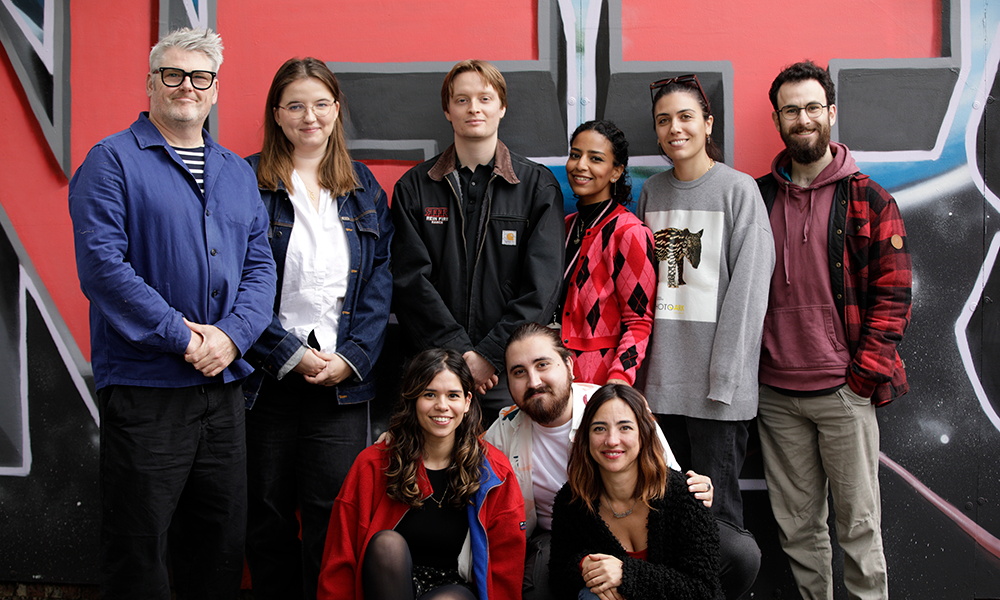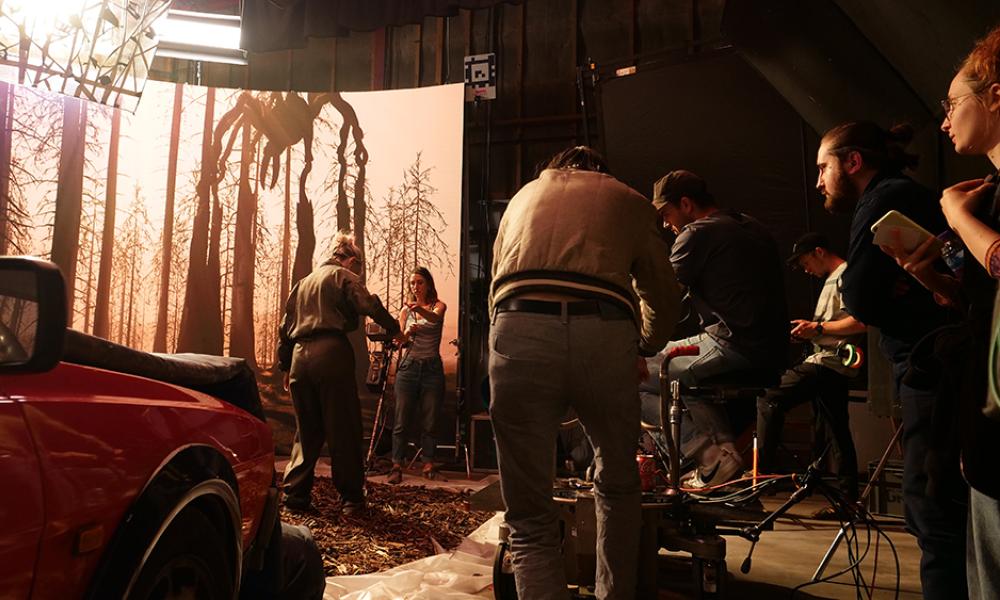From Custom Creations to Virtual Productions: An Artist's Journey to A VFX Career
Visual Effects (VFX) are an integral part of the production process that requires highly skilled individuals to balance creativity with technical expertise.
The National Film and Television School (NFTS) recently caught up with Danielle Parker who graduated from the Visual Effects MA in 2023 to find out more about her pathway into this dynamic field.
NFTS VFX Class of 2023 with Danielle Parker (bottom left) and Course Leader Ian Murphy (top left)
What were you doing before your time at the National Film and Television School?
Before the NFTS, I studied BA Animation and Visual Effects at Falmouth University. I was also selling commissioned artwork, painting custom clothing and shoes for clients around the world.
What made you want to apply for Visual Effects training at the NFTS?
After my degree I felt that I didn't know enough about VFX, the course appealed to me because it goes through the whole VFX pipeline and is collaborative with other departments across the School which I really liked because it gives you a much deeper insight into how a film is made.
How did you get your first job after graduating?
The course leader, Ian Murphy, got me in touch with DNEG Virtual Production (now DNEG360) and I interned with them for a few days at their virtual production stages. I then spoke to them about where I could fit in at their company as I didn’t know whether I was a technical artist or a creative artist. I was offered a role as I was both technical and creative!
On set on Danielle's Virtual Production graduation film, shot at the NFTS
What are you working on now?
I'm doing matte paintings and creating environments in Unreal Engine for advertising, film and television. I wish I could talk more about it! While at DNEG360 I've worked on projects including upcoming Amazon show Those About To Die and Dimension Studio’s The Evolution of Virtual Production minidoc.
What is a typical working day like?
Honestly, it changes every single day! A few months ago I was working from home and then the next thing I knew I was on a plane to be an artist on set for 3 months in Rome. For now I'm currently working in my office at home and creating matte paintings of skies, environments and concepts.
What are the key things you learnt at NFTS that are helping you in your career?
Other than the main VFX pipeline, learning to work as a team and collaborate with others has helped me massively. Working with others on a film and especially on set can be very stressful at times, having this experience of collaborating at the NFTS helped me keep calm under pressure and become a reliable artist that people can turn to.
What advice would you give to others considering training in VFX?
Try not to compare yourself to other artists in the beginning as it is you and your journey that matters most. The amount of times I started to compare myself to others and thought about giving up because my work was not as good as what they’re doing stopped me from trying new things. VFX is forever changing so learn as much as you can because who knows where it’ll take you. When I started the NFTS I didn’t think I would work in Virtual Production, I didn’t even know what it was but I’m so glad I was open to learning this pathway as I have had cool experiences so far.
-
Take the next step on your journey to a career in Visual Effects for film and television with The National Film and Television School.
Visual Effects (VFX) MA
2 years | Full-time
Funding available
Apply by 4 July to start January 2025
nfts.co.uk/visual-effects
Student Showcase
Watch the behind-the-scenes on Danielle's graduation film, Reality Heist!
Visual Effects MA students experimented with ground-breaking technology to bring Reality Heist to life, an original five-minute film that uses cutting-edge Virtual Production techniques.



